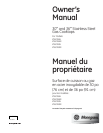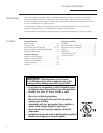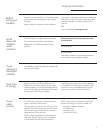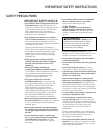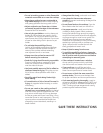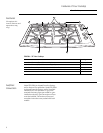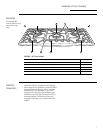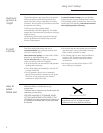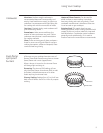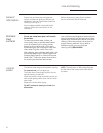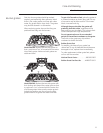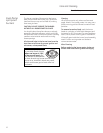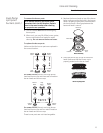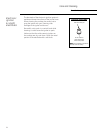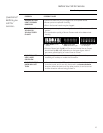
9
Cookware
Aluminum: Medium-weight cookware is
recommended because it heats quickly and
evenly. Most foods brown evenly in aluminum
cookware. Use saucepans with tight-fitting lids
for cooking with minimum amounts of water.
Cast Iron: If heated slowly, most cookware will
give satisfactory results.
Enamelware: Under some conditions, the
enamel of some cookware may melt. Follow
cookware manufacturer’s recommendations
for cooking methods.
Glass: There are two types of glass cookware—
those for oven use only and those for surface
cooking (saucepans, coffee and teapots). Glass
conducts heat very slowly.
Heatproof Glass-Ceramic: Can be used for
either surface or oven cooking. It conducts
heat very slowly and cools very slowly. Check
cookware manufacturer’s directions to be sure
it can be used on gas cooktops.
Stainless Steel: This metal alone has poor
heating properties, and is usually combined with
copper, aluminum or other metals for improved
heat distribution. Combination metal cookware
generally works satisfactorily if it is used at
medium heat as the manufacturer recommends.
Using Your Cooktop
Gas Cooktop
Dual-flame
spill-proof
burners
All burners on your cooktop have two rows of
flames. These dual-flame burners have a simmer
(lower) flame and a main (upper) flame.
When a burner is turned on, the simmer flame
will always light and stay on.
Simmering: The simmer (SIM) setting will use
only the lower flames. Use simmer (SIM) to melt
chocolate, hold delicate sauces or for other
foods requiring low simmer heat.
Primary Cooking: Settings from LO to HI will use
both rows of flames. Use LO to HI for all purpose
cooking.
Main Flame
Simmer Flame
Simmer Flame



